Abstract
The effects of feedback and self-recording on the small group conversational behaviors of two head trauma youths were evaluated. Feedback involved providing clients a light signal corresponding to positive or negative social interactions. The self-monitoring procedure required that the clients flip a switch corresponding with their positive or negative interactions. An A1-B1-C1-A2-C2-B2 design in which the feedback phase (B) and self-monitoring phase (C) were alternated to control for order effects demonstrated the efficacy of both interventions. Performance gains were also shown to generalize to less structured situations, bringing the clients' level of positive responses into a range established with a social comparison group.
Full text
PDF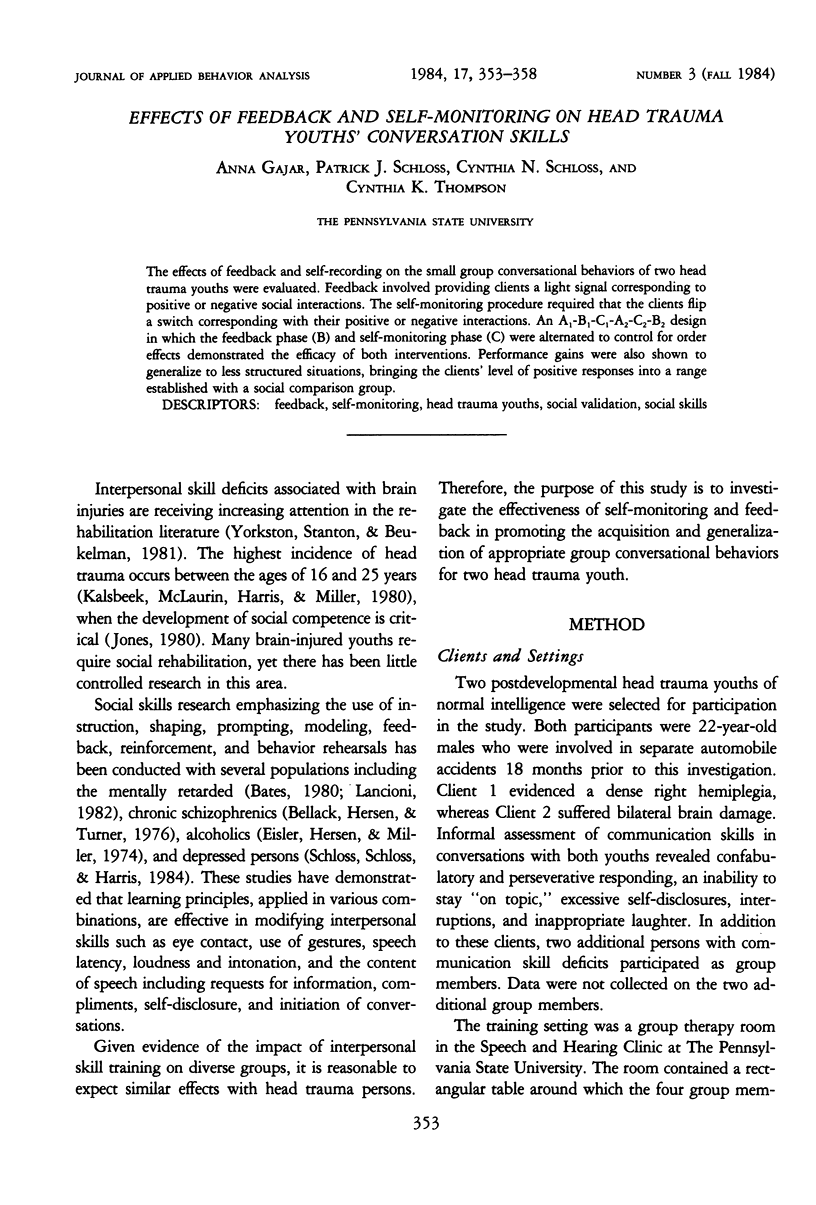
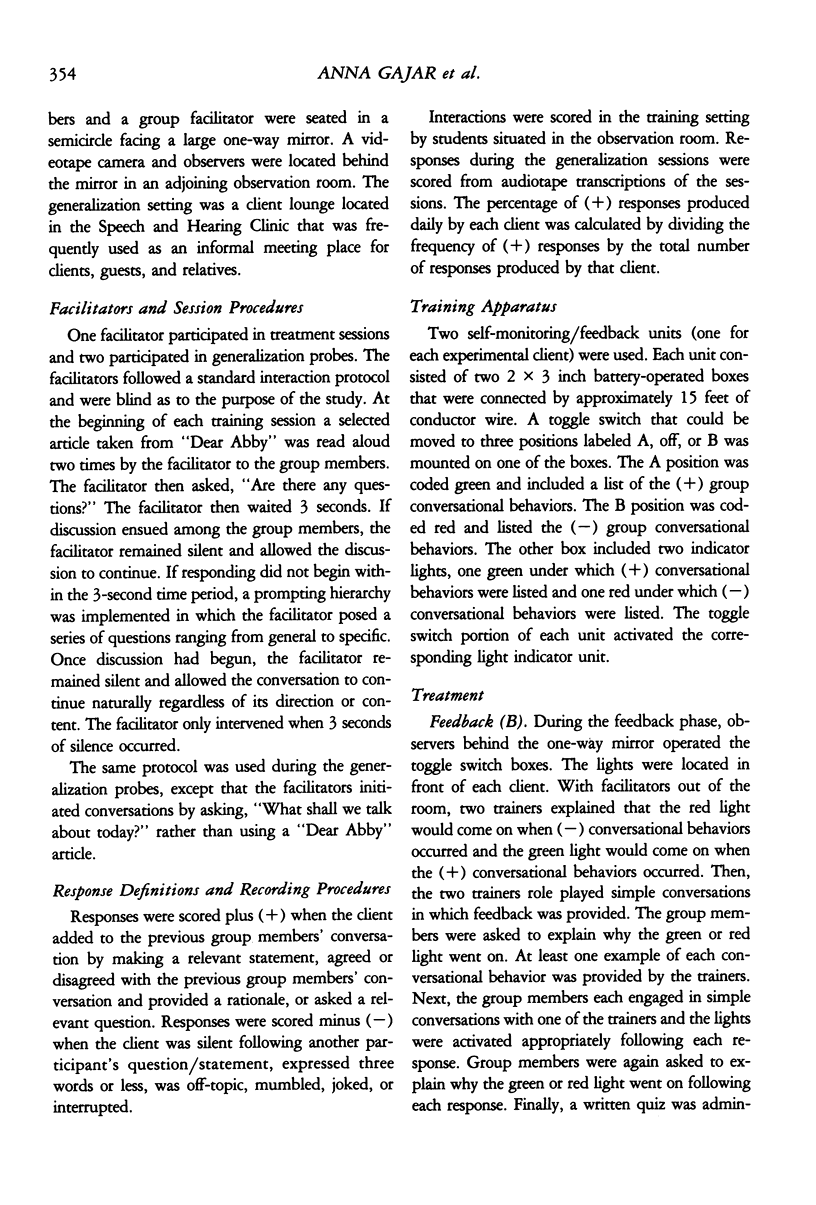
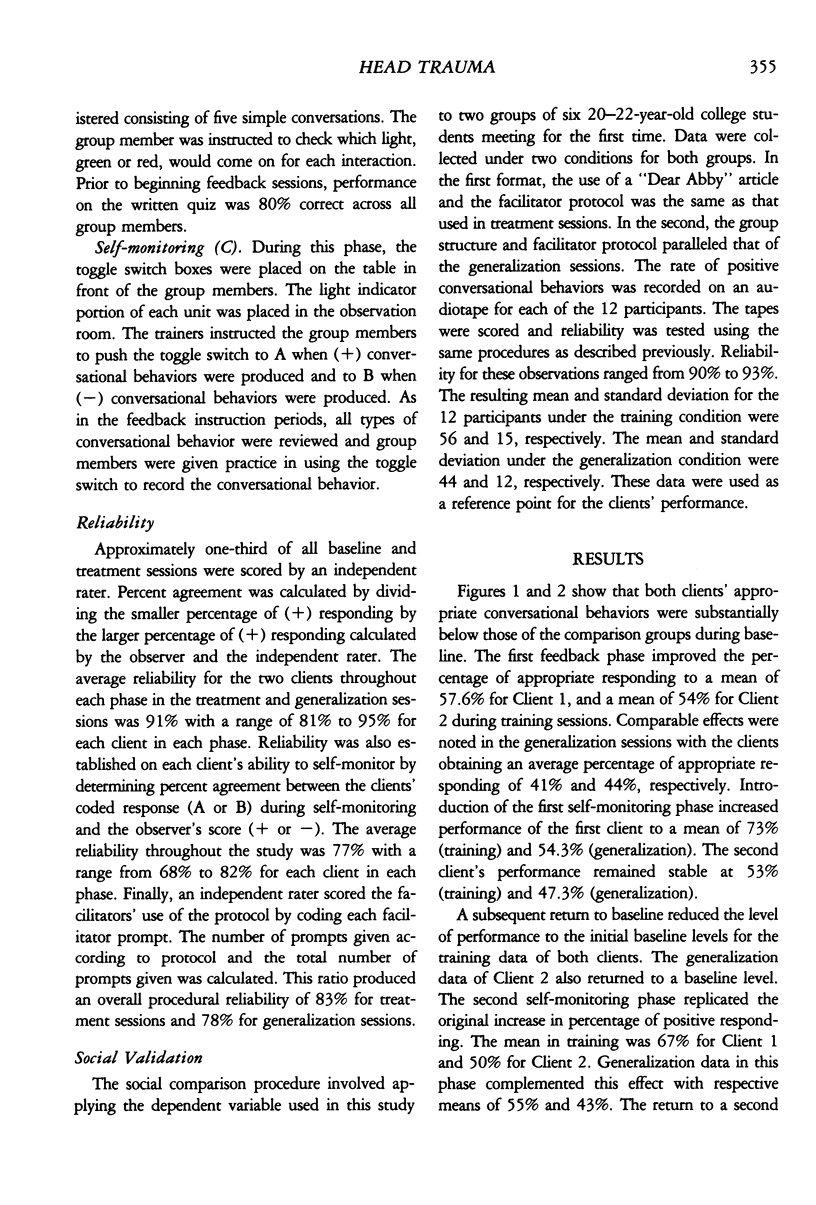
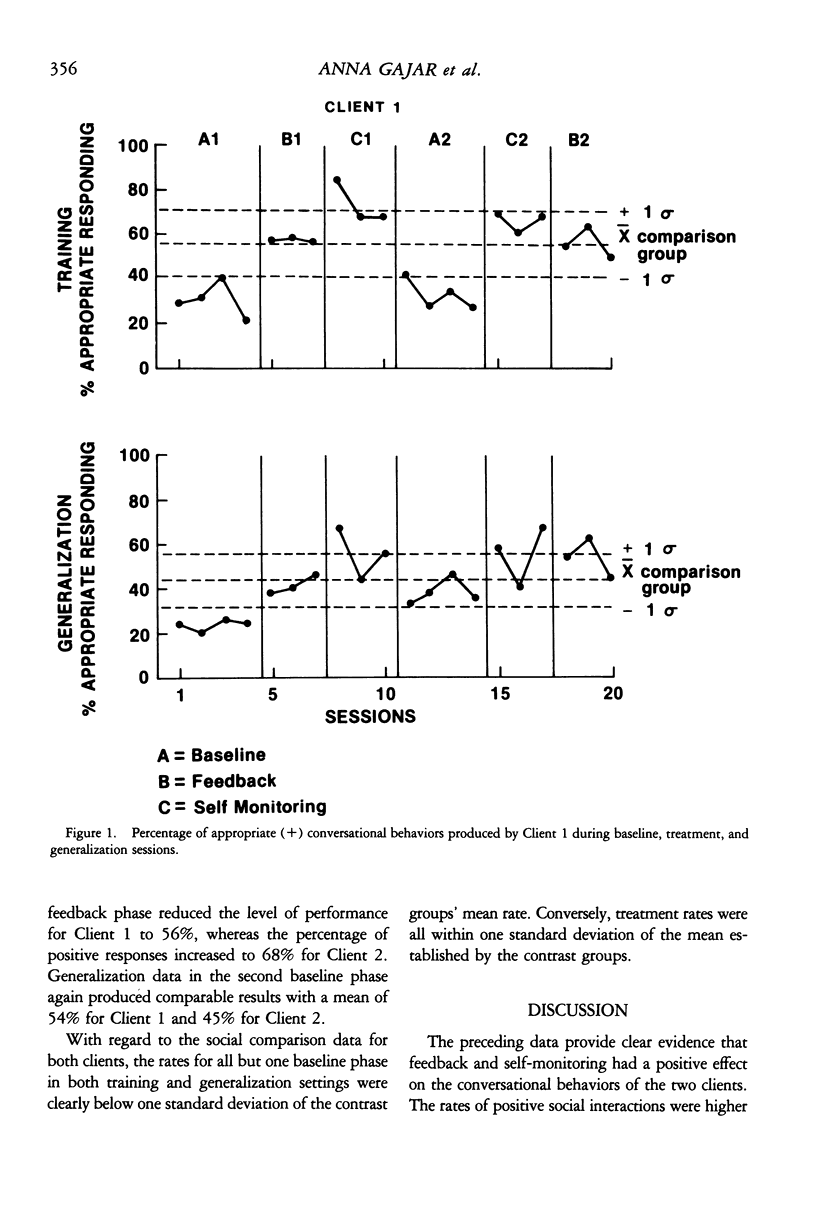
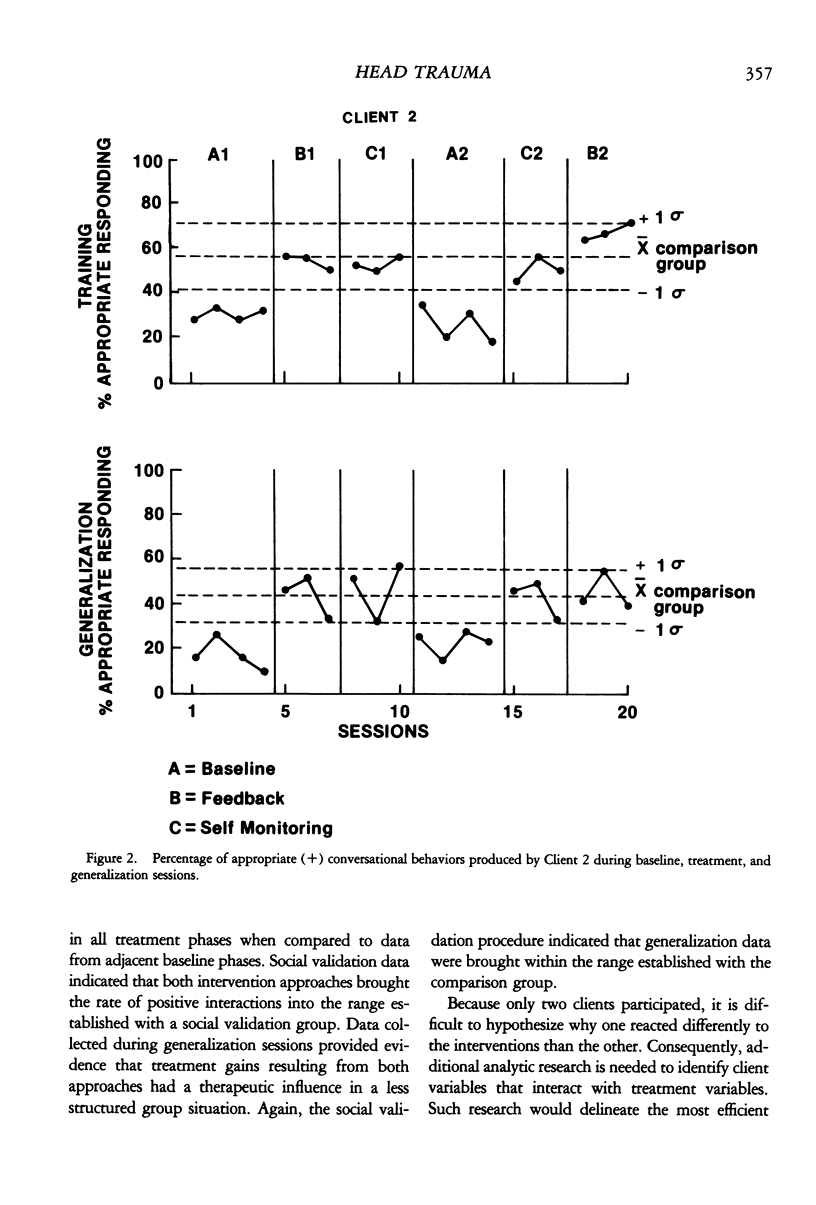
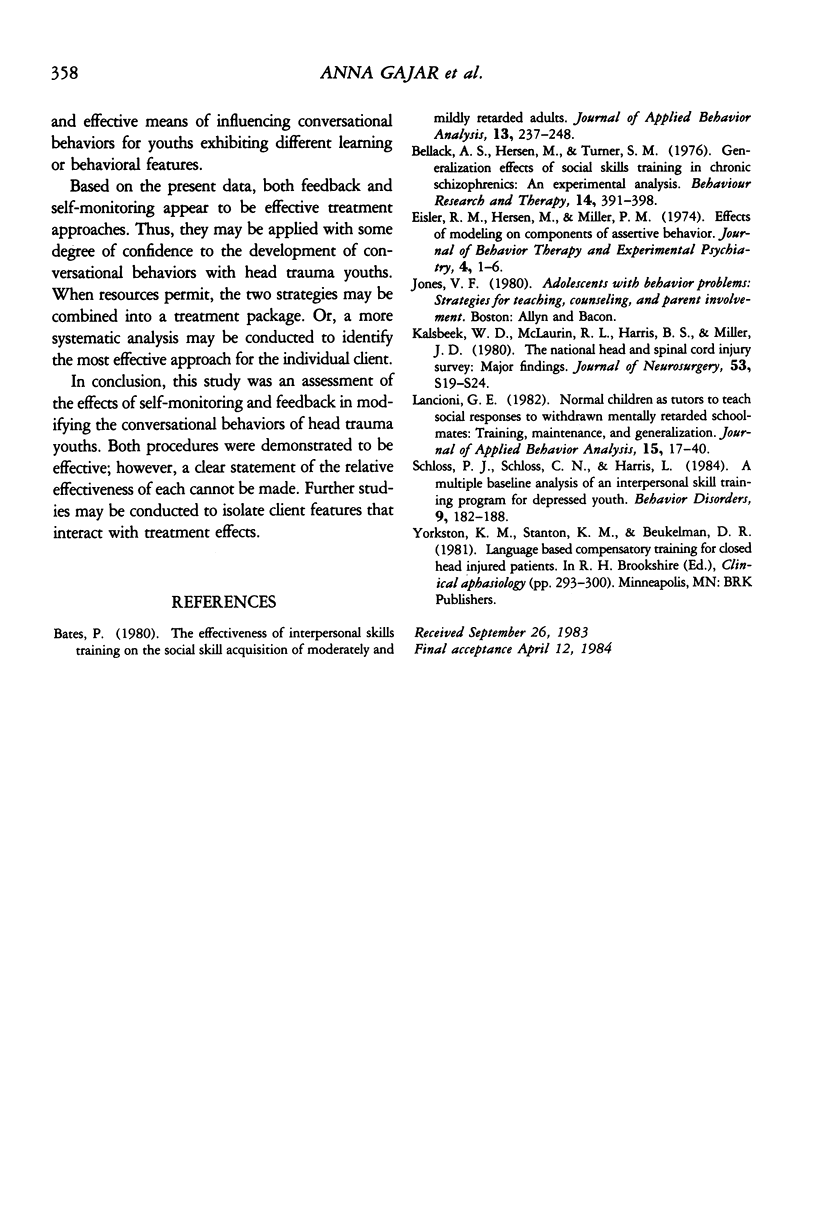
Selected References
These references are in PubMed. This may not be the complete list of references from this article.
- Bates P. The effectiveness of interpersonal skills training on the social skill acquisition of moderately and mildly retarded adults. J Appl Behav Anal. 1980 Summer;13(2):237–248. doi: 10.1901/jaba.1980.13-237. [DOI] [PMC free article] [PubMed] [Google Scholar]
- Bellack A. S., Hersen M., Turner S. M. Generalization effects of social skills training in chronic schizophrenics: an experimental analysis. Behav Res Ther. 1976;14(6):391–398. doi: 10.1016/0005-7967(76)90085-1. [DOI] [PubMed] [Google Scholar]
- Kalsbeek W. D., McLaurin R. L., Harris B. S., 3rd, Miller J. D. The National Head and Spinal Cord Injury Survey: major findings. J Neurosurg. 1980 Nov;Suppl:S19–S31. [PubMed] [Google Scholar]
- Lancioni G. E. Normal children as tutors to teach social responses to withdrawn mentally retarded schoolmates: training, maintenance, and generalization. J Appl Behav Anal. 1982 Spring;15(1):17–40. doi: 10.1901/jaba.1982.15-17. [DOI] [PMC free article] [PubMed] [Google Scholar]


